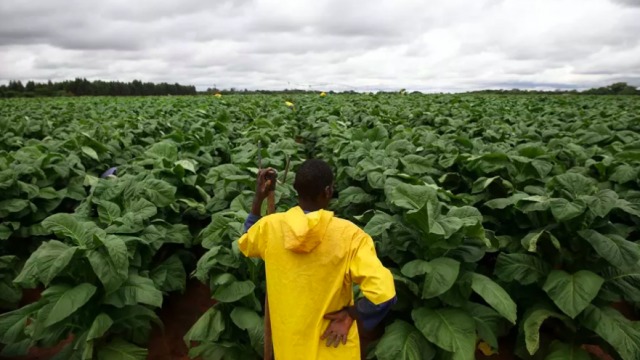- About
- Topics
- Picks
- Audio
- Story
- In-Depth
- Opinion
- News
- Donate
-
Signup for our newsletterOur Editors' Best Picks.Send
Read, Debate: Engage.
| September 14, 2022 | |
|---|---|
| topic: | Women's rights |
| tags: | #Zimbabwe, #Emmerson Mnangagwa, #sexual violence, #women's rights, #Susan Mutami |
| located: | Zimbabwe, Australia |
| by: | Cyril Zenda |
Susan Mutami, a young Australia-based Zimbabwean woman, took to Twitter Space in July to reveal that she was allegedly raped by now Zimbabwean President Emmerson Mnangagwa.
Mutami claims the alleged rapes occured in the 2000s when she was a teenager and lived in Mnangagwa's hometown of Kwekwe, some 200 kilometers southwest of the capital, Harare.
Mutami, 33, who claims she was also sexually violated by several other high-ranking government and ruling ZANU-PF officials, has since filed a police report with the Australian police, where a criminal case for international prosecution was launched against the Zimbabwean leader.
As a sitting president, Mnangagwa is immune to prosecution at home.
While Mnangagwa has remained mum on the grave allegations being levelled against him - with his spokesperson George Charamba refusing to comment - activists and analysts say Mutami’s case should not be casually dismissed, as it shines light on the broader plight of women and girls in Zimbabwe, where a climate of intimidation has long prevailed.
"Whatever the outcome, the case should be a starting point for a frank discussion on the absence of protection for women and children from sexual abuse that is prevalent in this country," the director of a Zimbabwean non-profit promoting women’s rights told FairPlanet on condition of anonimity.
"It is a scourge, and it is more hopeless for survivors when the alleged perpetrators are people who are supposed to protect them," she added.
According to two Zimbabwe-based researchers, fear ensures that the thousands of rape victims in the country suffer in silence.
Many survivors, the researchers explain, remain gagged by the fear of being stigmatised and losing their spouses or even their lives by opening up about their traumatic experiences. Such is the case for individuals experiencing abuse in family settings, at the workplace, school or church, as well as in various relationships involving uneven power dynamics.
Seeing as in Zimbabwe most things are in short supply - from jobs and education opportunities to land, water, transport and other essentials - 'sextortion', too, becomes rife. Researchers have claimed that nearly 60 percent of women in Zimbabwe admitted to being subjected to 'sextortion' on a regular basis.
In politics, a culture of rape in Zimbabwe is traceable to the country’s 1970s liberation war, the genocidal rape during Gukurahundi pogroms of the 1980s, the 2008 political violence and all the way through to those violated by members of the security forces in 2019.
Since Mutami made the allegations, not one of the several dozen women's rights groups in Zimbabwe has publicly commented on the matter, nor did they offer her any support.
"We usually don’t comment on matters like this for obvious reasons," the director of a girl’s rights organisation told FairPlanet.
Some women with ties to the ruling party have even accused Mutami of making false accusations against the President.
Zimbabwe is on the cusp of passing a law - the Private Voluntary Organisations Amendment Bill - which analysts say would allow the government to ban non-governmental organisations it takes issue with.
It is under this climate of fear that cases of sexual violence against women and girls flourish.
The challenges of fighting sexual abuse in Zimbabwe were amplified by the nearly two decades it took Rita Lunga-Mbatha - a survivor of sexual harassment at work - to get justice.
Even Lunga-Mbatha herself - who has since formed the Women’s Comfort Corner Foundation (WCCF), a non-profit providing support to women and girls in distress, and is a board member of the International Alliance of Women (IAW) - was unavailable to comment on Mutami's allegations.
But when asked by FairPlanet earlier this year about the reasons why victims of sexual abuse do not easily come out, Mbatha explained: "Fear of stigma. It is the norm for any woman reporting sexual harassment to be shamed and intimidated.
"Simple facts are twisted and manipulated. Wild and damaging allegations are made against survivors of sexual violence. Instead of being a victim you become the accused. The ramifications can be chilling."
Despite the lack of support back home, Mutami is escalating her fight against the Zimbabwean leader by taking it to a global stage following her invitation to be a key speaker at this year’s United Nations (UN) Category on Women and Child Abuse.
The category aims to raise awareness of the rights of women and children and of the importance of having women bring issues that affect them to the forefront.
"It is the norm for any woman reporting sexual harassment to be shamed and intimidated."
In a tweet from 21 August, Mutami said: "I just wanted to let you know that I have been invited to speak at the @UN this year in New York, category Women and Child Abuse."
The invitation was commended by a local rights group, the Zimbabwe Advocacy for Human Rights and Exposing Corruption. In a statement, the group said the invitation provides Mutami a chance to bring global attention to her case.
"Congratulations to Susan Mutami," reads the statement, "she has been given the opportunity to address the world about women abuse, her sexual abuse by Emmerson Mnangagwa, at the UN General Assembly where world leaders gather.
"Susan Mutami is going to narrate her ordeal before all human rights organisations, Heads of State from around the world, including Zimbabwe."
Image: World Economic Forum.
By copying the embed code below, you agree to adhere to our republishing guidelines.

